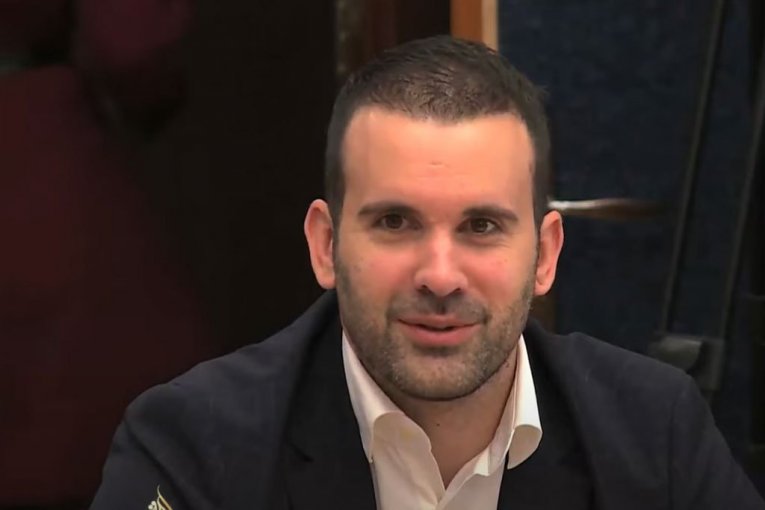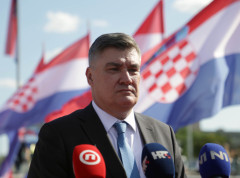Igor Dodik, the son of the President of Republika Srpska, Milorad Dodik, responded to the Montenegrin Prime Minister, Milojko Spajic’s statement that the Day of Republika Srpska is an unconstitutional holiday.
Dodik wrote on the social network X that he had a very correct relationship with Spajic and helped him, as he says, „to raise the party infrastructure in Montenegro.“
„He came to Banja Luka to support the Day of Republika Srpska and admired how we fight against everything, after Escobar, he has amnesia and declares that the day of Srpska is unconstitutional,“ wrote Igor Dodik.
Spajic was in Brussels on Friday, where he had a briefing at the European Policy Center (EPC) on the topic: „New government, new prospects? Reviving Montenegro’s efforts to join the EU“.
One of the questions asked was about the chief of staff of the Speaker of the Assembly, as well as officials from the New Serbian Democracy and the Democratic People’s Party, attending the unconstitutional Day of Republika Srpska (January 9).
As reported by the Podgorica News, the man who asked the question noted that „celebrating an unconstitutional holiday is contrary to European values and the rule of law, which Spajic agreed with.“
„There is no doubt that we want to respect the territorial integrity of Bosnia and Herzegovina. We do not want to jeopardize our wonderful neighbor, with whom we have great relations,“ Spajic stated, among other things.
Prime Minister Spajic’s statement on the unconstitutionality of the Day of Republika Srpska caused a reaction from Igor Dodik, who emphasized the previous cooperation and support provided by Spajic in raising the party infrastructure in Montenegro. Dodik accused Spajic of having amnesia and forgetting the previous support of the Day of Republika Srpska, emphasizing the importance of respecting the territorial integrity of Bosnia and Herzegovina.
The political tension between the two neighboring countries is evident in their different positions on the controversial Day of Republika Srpska. While Dodik and Serbia support the holiday, it is considered unconstitutional and contrary to European values by Montenegro and many members of the international community.
The controversy surrounding the Day of Republika Srpska, along with the involvement of high-ranking officials from both countries, showcases the complex geopolitical dynamics in the region and the ongoing struggle for political influence.
As the situation continues to develop, it remains to be seen how the governments of Republika Srpska and Montenegro will address the contentious issue and whether it will have broader implications for their diplomatic relations and regional stability.
The exchange between Dodik and Spajic highlights the delicate balance of power and the deep-rooted historical and political tensions in the Balkans, where conflicting national narratives and territorial disputes continue to shape the region’s complex geopolitical landscape.
Overall, the controversy surrounding the Day of Republika Srpska serves as a potent reminder of the enduring legacy of the Yugoslav wars and the ongoing battle for national identity and sovereignty in the Western Balkans. The differing perspectives of Republika Srpska and Montenegro underscore the complex web of historical, political, and cultural factors that continue to define the region’s complex geopolitical dynamics.




